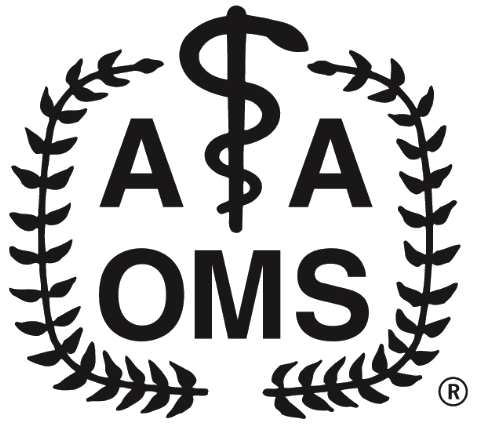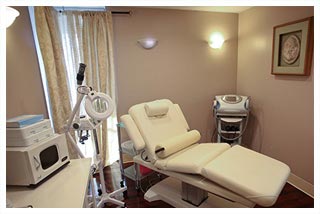After Sinus Lift
You have had a Sinus Lift Augmentation procedure in your upper jaw. This procedure replaces deficient bone height in the area of your first and second molars and occasionally second premolar. Without this important procedure, there would be insufficient bone height to support dental implants due to an enlarged sinus.
The most commonly used bone graft materials for sinus lifts are: freeze-dried cadaver bone, bovine bone, artificial synthetic bone, your own bone (autogenous bone) or a combination of two or more of these materials. If autogenous bone was utilized you will have two surgical wounds: the donor site and the recipient site.
DO NOT UNDER ANY CIRCUMSTANCES BLOW YOUR NOSE FOR THE NEXT FOUR (4) WEEKS.
This may be longer if indicated. You may sniff all you like but no blowing.
Do not blow your nose or sneeze holding your nose. Flying in pressured aircraft may also increase sinus pressure and should be avoided during the first four weeks after surgery. Scuba diving must be avoided for at least the first three months after surgery. Decongestants such as Drixoral, Dimetapp or Sudafed will help reduce pressure in the sinuses if necessary. You may also be given a prescription for antibiotics, please take these as directed. Anything that causes pressure in your nasal cavity must be avoided.
Avoid bearing down when lifting heavy objects, blowing up balloons, playing musical instruments that require a blowing action or any other activity that increases nasal or oral pressure for at least four weeks after surgery.
Antibiotics
Be sure to take the prescribed antibiotics as directed to help prevent infection.
Oral Hygiene
It is important to keep your mouth clean after surgery to reduce the risk of infection and promote rapid healing. Start salt water rinses the evening of surgery or the day following your procedure. Use one-half teaspoon of salt dissolved in an 8 ounce glass of water and gently rinse with portions of the solution, using the entire glassful. Repeat as often as you like but rinse at least four to five times daily and always after eating for the next five days.
Begin careful tooth brushing with a soft bristle brush and tooth paste and flossing on the evening of surgery or the first post-operative day and continue at least twice a day. Please brush very gently, particularly near the surgical area.
Dr.Hajarian may prescribe an antibiotic rinse (Chlorhexadine, Periogard, Peridex) for certain procedures. Begin using the Peridex (chlorhexidine) rinse on the evening of surgery or the first day after surgery. This rinse should be used in the morning and at bedtime after tooth brushing and flossing. Rinse in the mouth for one minute then spit out twice a day after brushing. Do not eat, drink or rinse your mouth immediately after using the medicated rinse.
Diet
Drink plenty of liquids. Eat soft foods for the first several days after surgery. Advance to a regular diet as swelling diminishes and you become more comfortable. Please avoid chewing or creating pressure on the bone graft site. Creating pressure on the graft site during the healing process can interfere with bone graft healing and compromise the outcome.
Please avoid drinking alcoholic beverages during the first week after surgery.
Please
DO NOT SMOKE for at least two weeks following surgery. If possible please discontinue smoking during the entire six month healing period. Smoking increases the risk of bone graft failure.
Wearing your Prosthesis
We understand how important it is for our patients to be able to wear their temporary teeth as soon as possible after surgery. All removable appliances including partial dentures, flippers and full dentures must be checked for proper fit by Dr. Hajarian before they are worn. These appliances can transmit pressure to the bone graft site which can interfere with bone graft healing and result in bone graft failure.
In some cases it may be necessary to go without wearing the temporary teeth for a few days until swelling resolves and some healing takes place. In most cases, partial dentures, flippers, or full dentures should be used only for cosmetic purposes, not for chewing. They should be worn only in public when required and removed in the privacy of your own home.
Post–Operative Complications
Swelling should reach its peak approximately 72 hours after surgery. After 72 hours, the swelling should slowly begin to improve. If swelling continues to increase after 72 hours please call the office.
A low grade fever during the first 24 hours after surgery is not uncommon. If your fever persists for more than 24 hours or you develop a fever of 101 or higher at any time please call the office immediately. It is not unusual to experience a small amount of bloody discharge or clotted bloody discharge from the nostril on the side of surgery. This may occur at any time during the first week after surgery and may persist for several days off and on. If you experience continuous or large amounts discharge from the nose please call the office.
If you experience severe or persistent sinus or nasal congestion please let us know.
Please review our, General Post Operative Care Instructions, for additional helpful information.
It is our desire that your recovery be as smooth and as pleasant as possible. If you have any questions about your progress please call the office. Please try to call during regular office hours; however we have coverage 24 hours a day, 7 days a week
General Post Operative Care Instructions
It is our desire that your recovery proceed as quickly and easily as possible. The effects of oral surgery can be quite variable so not all instructions will apply in all cases. Please read our instructions carefully, they should answer most if not all of your questions. Following these instructions will assist you, however, if you have any questions about your progress, please call us at (714) 540-1191
The primary goals of post operative care after oral surgery are: control the bleeding, good nutrition, adequate pain management, excellent oral hygiene and proper wound care. Good post-operative care is very important. The risk of infection, excessive pain and swelling can be minimized if instructions are followed carefully.
To control bleeding apply direct firm pressure to the surgical site by biting on a moistened gauze pad placed over the surgical area. Direct pressure should be maintained for 30 to 60 minutes.
After this time, the gauze pad should be removed and discarded.
Touching the wound area following surgery should be avoided. This may initiate bleeding by causing the blood clot that has formed to become dislodged.
Take pain medication as soon as you begin to feel discomfort. This will usually coincide with the local anesthetic becoming diminished.
Avoid strenuous exertion on the day of surgery.
Immediate application of ice packs to the sides of your face where surgery was performed will help to minimize swelling and bruising.

